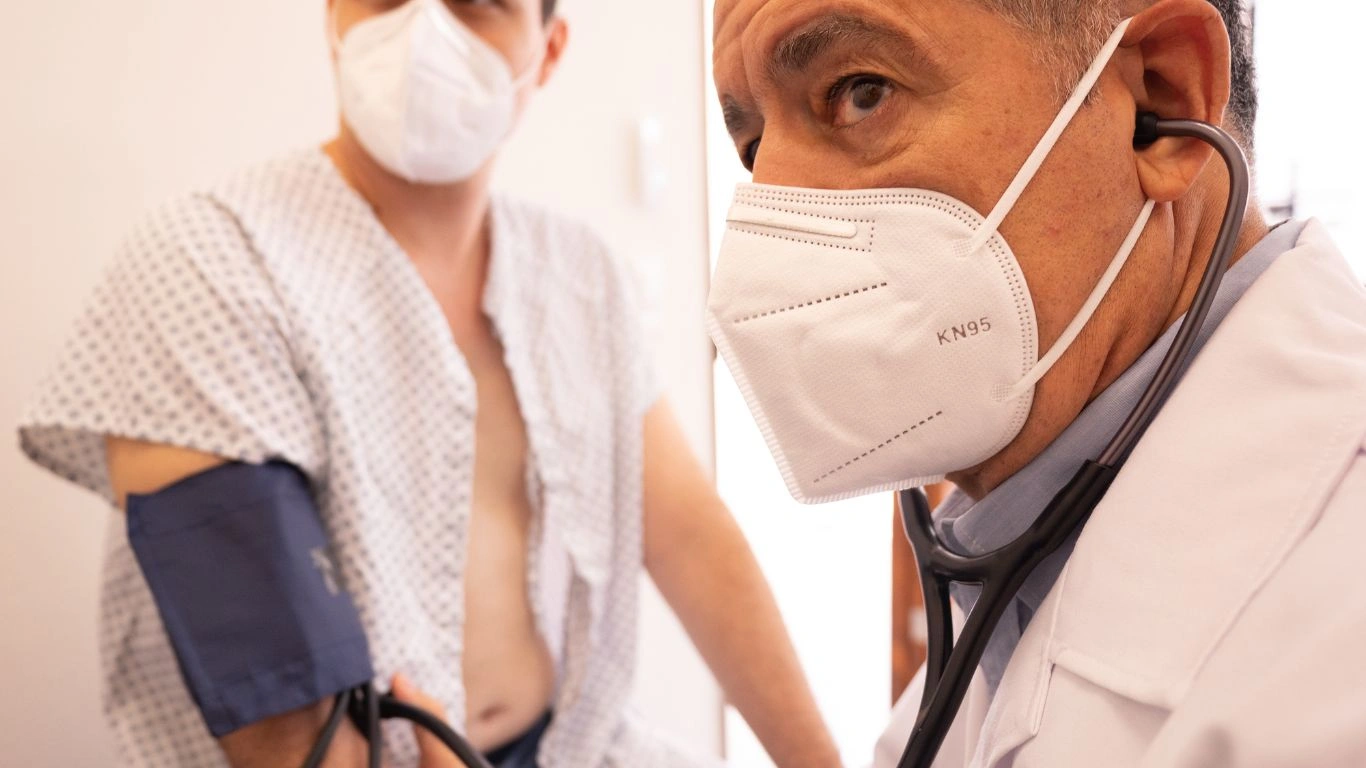Impact of Smoking on Hypertension: A Closer Look at the Risks and Effects
html
Wondering how smoking affects your blood pressure? If you’re a smoker, or even if you’re just curious about the connection, this guide will explain how smoking directly impacts hypertension and what you can do to protect your heart.
When we talk about the risks of smoking, most people are aware of the obvious dangers, like lung cancer or respiratory issues. But did you know that smoking also has a major impact on your blood pressure, contributing to hypertension and increasing your chances of serious heart disease? In this article, we’ll break down how smoking affects your cardiovascular health, the link between smoking and hypertension, and why quitting smoking is one of the best things you can do for your health. Let’s dive in! 
What is Hypertension?
Before we get into the smoking-related stuff, let’s quickly recap what hypertension is. Also known as high blood pressure, hypertension occurs when the force of the blood against the walls of your arteries is consistently too high. Over time, this puts extra strain on your heart and blood vessels, which can lead to serious health problems like heart disease, stroke, kidney damage, and more. Hypertension is known as a “silent killer” because it doesn’t always show symptoms, but it’s still very dangerous. That’s why it’s important to monitor your blood pressure regularly, especially if you smoke. 
How Does Smoking Affect Blood Pressure?
Now that we understand hypertension, let’s talk about how smoking plays a role. When you smoke, nicotine enters your bloodstream, and it immediately affects your heart and blood vessels. Here’s what happens:
- Nicotine Increases Heart Rate: Nicotine is a stimulant, meaning it can cause your heart rate to increase. This makes your heart work harder and raises your blood pressure temporarily. Over time, repeated nicotine exposure can lead to chronic high blood pressure.
- Vasoconstriction (Narrowing of Blood Vessels): Nicotine also causes your blood vessels to constrict, or narrow. When the blood vessels are smaller, your heart has to pump harder to get blood through your body, which increases your blood pressure.
- Endothelial Dysfunction: Smoking damages the lining of your blood vessels, a condition known as endothelial dysfunction. This makes it harder for your blood vessels to relax and expand properly, further contributing to high blood pressure.
- Increased Plaque Buildup: Smoking promotes the formation of plaque in your arteries, a condition called atherosclerosis. The plaque narrows your arteries, which increases the risk of hypertension and cardiovascular disease.

The Long-Term Effects of Smoking on Hypertension
If you’re a long-term smoker, the risk to your blood pressure is even higher. Here’s why:
- Chronic High Blood Pressure: Regular smoking causes sustained increases in blood pressure. This chronic hypertension can damage the heart and blood vessels over time, making it harder for your body to function properly.
- Increased Risk of Heart Disease and Stroke: The combination of smoking and hypertension significantly raises the chances of developing heart disease, heart attacks, and strokes. The damage to your arteries from smoking makes it easier for blood clots to form, which can block blood flow to your heart or brain.
- Worsening of Existing Hypertension: If you already have high blood pressure, smoking can make it even harder to manage. The added stress on your cardiovascular system makes it more difficult to control hypertension with medication and lifestyle changes.

How Quitting Smoking Can Improve Hypertension
The good news is that quitting smoking can help reduce your risk of hypertension and improve your heart health. Here’s how:
- Lower Blood Pressure: After quitting smoking, your blood pressure can drop significantly. Within just 20 minutes of quitting, your heart rate and blood pressure start to return to normal. Over time, the risk of developing hypertension decreases as your body recovers from the effects of nicotine.
- Improved Blood Vessel Function: Quitting smoking allows the lining of your blood vessels to heal, making it easier for your arteries to relax and expand. This improves blood flow and helps reduce your blood pressure.
- Reduced Risk of Heart Disease: By quitting smoking, you can lower your risk of heart disease and stroke, especially if you combine it with other healthy lifestyle changes like eating a balanced diet and exercising regularly.
Tips for Managing Hypertension and Quitting Smoking
If you’re trying to quit smoking and manage your blood pressure, here are some tips to help you along the way:
- Seek Professional Help: Consult with a healthcare provider for advice on quitting smoking and managing your blood pressure. They may recommend medications, therapy, or support groups to help you quit.
- Exercise Regularly: Physical activity helps lower blood pressure and can reduce cravings for nicotine. Aim for at least 30 minutes of moderate exercise most days of the week.
- Eat a Healthy Diet: A diet rich in fruits, vegetables, whole grains, and lean proteins can help lower blood pressure. Avoid foods high in salt, sugar, and saturated fats, as they can contribute to high blood pressure.
- Monitor Your Blood Pressure: Keep track of your blood pressure regularly, especially when quitting smoking. This will help you see improvements and stay motivated.
- Use Nicotine Replacement Therapy (NRT): If you’re struggling to quit smoking, nicotine patches, gums, or lozenges can help reduce withdrawal symptoms and make the process easier.
Conclusion
Smoking has a serious impact on hypertension, raising your blood pressure and increasing your risk of cardiovascular disease. The good news is that quitting smoking can have immediate and long-term benefits for your heart health. By quitting, you can lower your blood pressure, reduce the strain on your heart, and greatly reduce your risk of heart disease and stroke. If you’re dealing with hypertension, quitting smoking is one of the most important steps you can take toward better health. Stay committed, and take small steps toward a smoke-free, healthier life!
Appendices
References
For more information on smoking and hypertension, check out these resources:
- American Heart Association. (2023). “The Impact of Smoking on Your Heart and Blood Pressure.” Read Article
- National Institute on Drug Abuse (NIDA). (2024). “Smoking and Heart Disease.” Read Article
- World Health Organization (WHO). (2022). “Tobacco and Hypertension.” Read Article
FAQs
- How does smoking affect blood pressure in the long term? Smoking causes long-term increases in blood pressure, making it harder for your body to regulate blood flow and increasing your risk of heart disease and stroke.
- Can quitting smoking lower my blood pressure? Yes! Quitting smoking can help lower your blood pressure over time, with improvements starting within 20 minutes of quitting.
- Is it safe to smoke if I have high blood pressure? No, smoking can make hypertension worse by raising your blood pressure and increasing the risk of heart-related complications.
- What are some other ways to reduce hypertension besides quitting smoking? Regular exercise, a healthy diet, and reducing stress can all help manage blood pressure.
- How quickly can I lower my blood pressure after quitting smoking? Blood pressure starts to return to normal within 20 minutes of quitting smoking, with continued improvement over the following weeks and months.
Disclaimer
The information provided in this article is for educational purposes only and does not substitute for professional medical advice. Always consult with your doctor before making significant changes to your lifestyle, especially if you have health concerns related to smoking or hypertension. Individual health needs may vary, and professional guidance is crucial for personalized care.

Dr. Gwenna Aazee is a board-certified Internal Medicine Physician with a special focus on hypertension management, chronic disease prevention, and patient education. With years of experience in both clinical practice and medical writing, she’s passionate about turning evidence-based medicine into accessible, actionable advice. Through her work at Healthusias.com, Dr. Aazee empowers readers to take charge of their health with confidence and clarity. Off the clock, she enjoys deep dives into nutrition research, long walks with her rescue pup, and simplifying medical jargon one article at a time.







